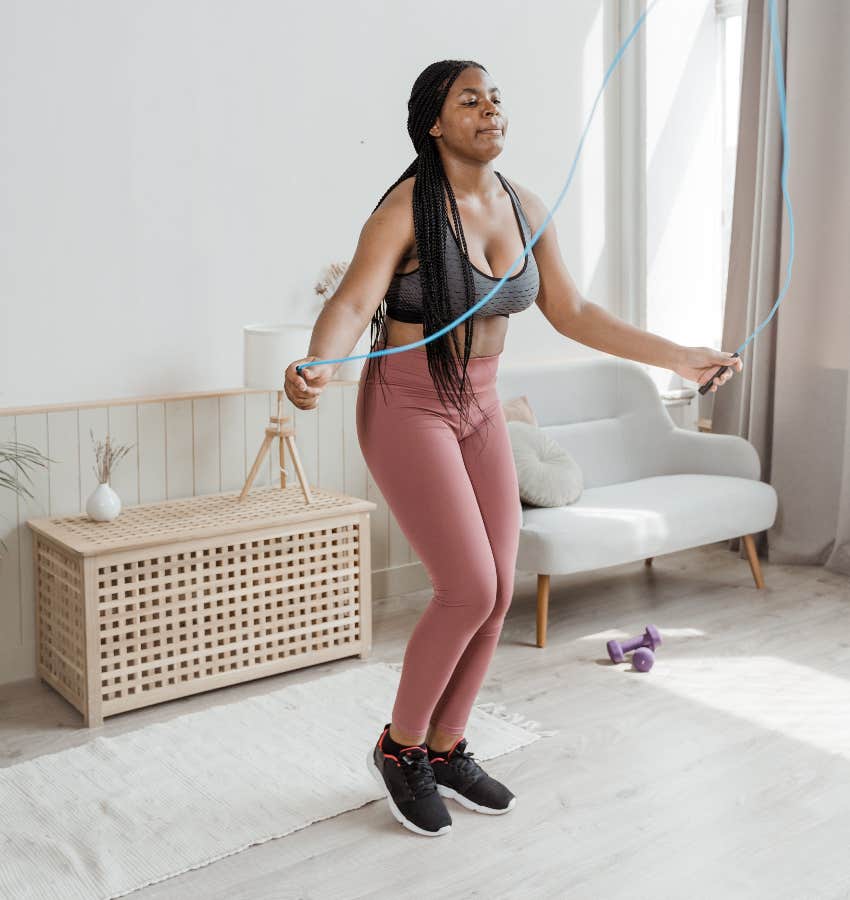20 Unsexy Micro-Habits That Save Me 30 Hours Every Week
Achieve more by doing less.
 Cookie Studio / Shutterstock
Cookie Studio / Shutterstock Work ethic may have been the most important predictor of any kind of success until now, but soon it won’t be the most important skill. Don’t get me wrong; work ethic still matters a lot, and always will, but people are already working as hard as they can.
The future calls for efficiency. And efficiency is simply to do less yet get disproportionate benefits. As such, we’ll be looking at the easiest habits that can boost your physical health, mental health, productivity, and creativity.
Here are 20 micro-habits that will save you 30 hours every week
1. Get sunlight right after waking up
Chances are you don’t run out to the balcony right after waking up. However, perhaps you should. You might be thinking it’s for the Vitamin D, but it’s more than that. It will help recalibrate your circadian rhythm.
Our circadian rhythm is mostly determined by two hormones: melatonin and cortisol. To fall asleep quickly at night, our cortisol levels should be low and melatonin levels high. When you don’t get sunlight in the morning, your cortisol levels might not peak enough earlier in the day, so stay elevated even when it’s bedtime.
 Photo: Olga Lioncat / Pexels
Photo: Olga Lioncat / Pexels
2. Do a course on stoicism
I discovered a lot of Stoicism after becoming a writer. When I ask my friends about it, to my surprise, many people don’t know in-depth about stoicism. Stoicism is one of the best philosophies out there and still holds so much value in our modern world. It has the ability to make life so much easier.
However, the texts of Stoicism are hard to break down for everyone. Everyone should buy a physical copy of the book "The Daily Stoic," where modern-day stoic Ryan Holiday has made Stoicism digestible in the form of 366 less-than-1-minute-to-read lessons, each designated for one day of the year.
3. Read your purpose out loud
One of the leading experts on longevity, Ben Greenfield (who has reversed his biological age by 17 years), says that the number one key to living a fulfilling and longer life is to live with purpose.
And even though many of us might know that vaguely, Ben suggests that we must have a formal sentence written down that conveys our purpose and that we must read it every day. Ben’s is “to empower people to live more adventurous, joyful and fulfilling lives.”
What’s yours? Write it down and read it every morning. It will motivate you to work towards your goals and live a more fulfilling life.
4. Get reassurance
What each one of us wants is reassurance. We all have some battle we’re fighting. Fear is a constant in all of our lives. Even Elon Musk is afraid that, perhaps, he’ll die before we get to Mars.
Reassurance in the form of an “It will all be okay” can sometimes be the sweetest sentence we could hear. And because while we won’t always have another person to say it to us, we need to do it ourselves.
Every morning I tell myself that it will be okay. I become mindful of my fears and insecurities and suffering, and I tell myself that it will be okay; that my suffering is impermanent. And after months of doing this, my anxiety levels are lower; I’m learning to take my days one at a time and live an uplifted life.
5. Contemplate the impermanence of your sensory pleasures
We all have some sensory distractions that stop us from achieving our goals. For most of us, it’s sugary food and binge-watching. We cannot resist delicious food, and we fail to lose that belly fat. And Netflix has never been more efficient at stopping us from working.
It’s okay to enjoy these. However, when we overindulge, it becomes a problem. Every morning, try to spend some time becoming mindful of your particular sensory distractions and contemplate their impermanence. Tell yourself how the pleasure lasts for so little time but holds the capacity to do damage long-term.
6. Brush with your non-dominant hand
I once read that many neurologists are encouraged to use their non-dominant hands to do tasks to help build dexterity and strengthen neural connections in the brain.
While you don’t have to do everything with your non-dominant hand, brushing your teeth like that is a good place to start. It will help your brain become healthier while, at the same time, making you more creative.
7. Practice time-blocking
Time-blocking is a simple time-management technique by Cal Newport that takes less than 1 minute but leads to so much clarity in your day.
Simply divide your day into 30-minute blocks (or 5-minute blocks if you’re Elon Musk) and assign tasks to them. This will help eliminate taking decisions at the moment and also help you deal with procrastination.
8. Dip your head in cold water
Many people hate cold showers, so I’ll do you one easier. Don’t have a cold shower, but at least dip your head in a bucket with cold water.
Your brain has a blood-brain barrier whose job is to keep certain harmful substances away from the neural tissue. However, this blood-brain barrier gets leaky with age, allowing important stuff to leak out, and toxic stuff to get in.
As Ben Greenfield mentions, exposing your head to cold is a fantastic way to improve this barrier's quality.
9. Wash fruits and veggies with a vinegar solution
According to research, approximately 5.6 billion pounds of pesticides are used each year worldwide, with the United States accounting for 1 billion pounds. The numbers are staggering, and unless you’re eating 100% trusted organic food, you’re consuming some of this pesticide.
It’s a really wise choice to start washing your food the right way. Simply mix 1 part vinegar with 4 parts water, and soak your fruits and veggies in it for 2–5 minutes, followed by rinsing with normal water. Don’t consume all those chemicals when you don’t have to.
10. Do 30 seconds of pre-meal exercise
We’re taking a page out of Ben Greenfield’s wisdom again. He says that controlling glycemic variability is perhaps the most important thing to live longer.
And the easiest way to do that? Just do 30 seconds of exercise like burpees, squats, or jumping jacks before meals. This increase in heart rate will help optimize glycemic variability due to that meal. Combine this with 10 minutes of walking post-meal, and you get the best out of that meal.
 Photo: MART PRODUCTION / Pexels
Photo: MART PRODUCTION / Pexels
11. Eat with a smaller spoon
With all the talk of how incredible the human brain is, it’s also pretty easy to trick. One way to do that is to eat with a smaller spoon. Some studies show that eating with smaller spoons can reduce calorie intake as it reduces both bite-size and consumption rates.
It’s almost laughable, but it works. And with obesity being the new pandemic, it won’t hurt to make this tiny shift. After all, it’d be really nice if we could fit into those jeans we used to a year ago.
12. Practice Hara Hachi Bu
It can be argued that when you’re 80% full, you’re actually 100% full. It’s because even after enough food reaches your stomach, there’s a delay in a signal which causes your brain to tell you to stop eating later than it should. This leads to overeating.
Eating food only until you’re 80% full is the Okinawan practice called Hara Hachi Bu. Besides the science, Hara Hachi Bu promotes an important mindset shift as well. The western world eats until they are able to say “I’m full,” while Okinawans eat until they’re able to say, “I’m no longer hungry.”
13. Use 'do it today and make it incredibly small'
All of us have that one project we need to start working on. And we keep pushing it off to tomorrow, forgetting the adage that says “tomorrow never comes.” However, there's a helpful technique to better deal with this problem.
It’s simple — do it today and make it incredibly small. Want to start working on your abs? Instead of starting a full-blown workout on Monday, do 2 crunches right now. Want to finally start writing that article? Instead of waiting for hours of free time, write only one sentence right now.
This strategy helps make an overwhelming task simple enough to do at the moment.
14. Overshoot a little at something every day
Overshooting is a technique inspired by a quote by Ed Mylett: "All the greats do one more and all the average don't." This is how it works. Whatever your desired goals for the day, try to do a little more in at least one of them every day.
Let's say that I have these 3 goals for my day: Run 7 laps in the park, read 40 pages, and write 1,500 words.
On Monday, I might decide to run 8 laps. On Tuesday, I might read 45 pages. And on Wednesday, I might decide to write 1,600 words. This will keep sending a message to my brain every day that I’m capable of doing more. This is how overshooting may help build mental strength over time.
15. Use a work-shutdown ritual
Every day, without fail, Cal Newport ends his typical workday by actually saying the phrase, “Schedule shutdown, complete.” And, like a robot, he moves away from work. After uttering this phrase, if any work-related issue pops up in his head, he answers it in the following manner:
- I said the termination phrase.
- I wouldn’t have said this phrase if I hadn’t checked over all of my tasks, my calendar, and my weekly plan, and decided that everything was captured and I was on top of everything.
- Therefore, there is no need to worry.
I’ve adopted this ritual in my life as well with my phrase being a simple “work done.” I say that every day around 6 p.m., and I switch off my work side. Doing this has helped me reduce my work-related anxiety.
16. Do yoga for your spine
Yoga is a wonderful way to keep your joints healthy. However, if you can’t find the time to invest in yoga for your entire body, try to find a minute or two to take care of your back.
Research shows that spine problems are off the charts, dominated by lower back pain. This is partly due to the lack of exercise and long hours at our desks. It’s time we all started to take care of our spines. So, pick a pose, do it for a week or two, switch to another, and keep going:
- Sphinx pose
- Locust pose
- Child’s pose
- Thread the Needle
- Cat and cow
17. Go on 'awe walks'
The pressure of the modern world can be hard to deal with sometimes. One habit to deal with this is "awe walks." Awe walks are when you remind yourself of the immensity of the universe and that it’s okay if you don’t have a perfect life. They’re shown to boost mental well-being.
How do you do them? Simple. Walk out of the house at night, put on your headphones, listen to music, and watch the stars. Simply put, look at the universe with awe.
 Photo: Atahan Demir / Pexels
Photo: Atahan Demir / Pexels
18. Measure what you care about
We prefer ignorance rather than the truth. But when you engage in self-awareness by measurements, you make it easier to take action in the right direction. So, measure what you would like to be managed.
Step on the weighing scale every day, if you want to look leaner. If you want to waste less time, place your screen time widget on the homepage and write it down in your journal every day. If you want to be smarter, measure how many books you’re reading.
19. Write down one idea every day
Write down 10 ideas every day. They can be article ideas, ideas on how to make money or to live better. Anything, really. As a beginner, 10 might seem overwhelming, so start with one.
Write down one idea (small or big) every day about living a better life. They could be things like: Start drinking apple cider vinegar. Stop taking your phone to the washroom. Start taking power naps.
20. Practice self-compassion
Every day, we set out to accomplish something. There are days when we do, and then there are days when we fail. And while it’s important to learn from your micro-failures, you shouldn't beat yourself up for those.
Before sleeping, practice self-compassion. Research shows that people who practice self-compassion are happier. After all, there’s nothing noble about going to bed mentally beaten up and guilty. Say, “I forgive myself” and go to bed with a clear conscience.
Akshad Singi, M.D. is a writer and doctor whose work has been published in Better Humans, Medium, Business Insider, Mind Cafe, and more.
